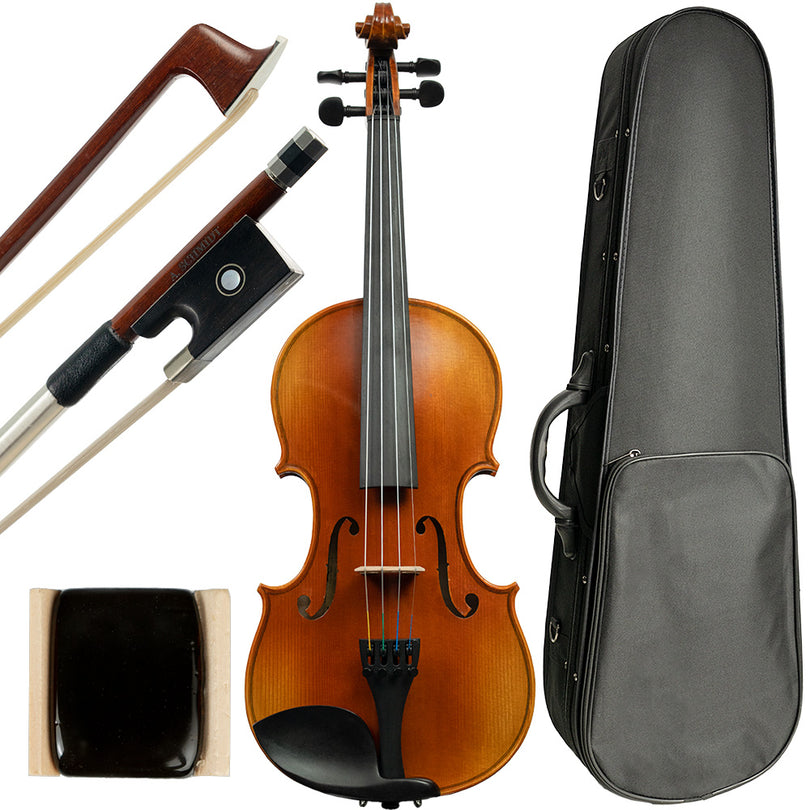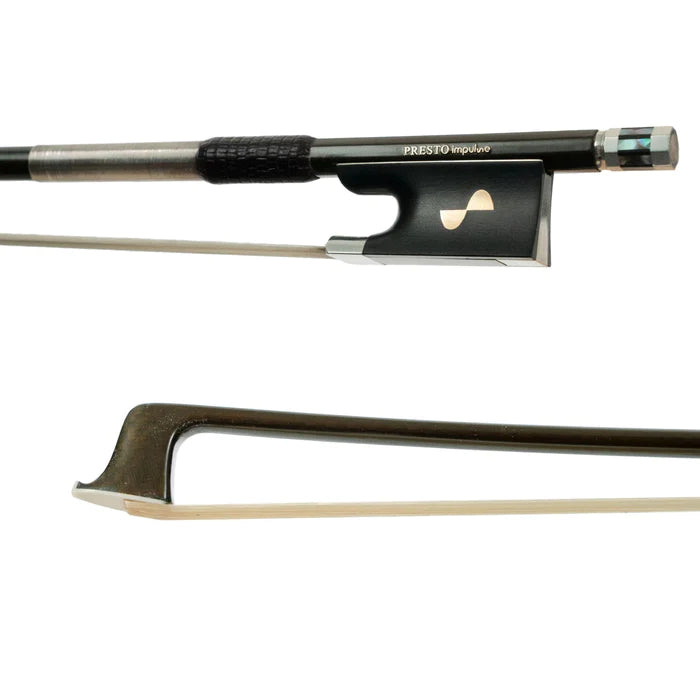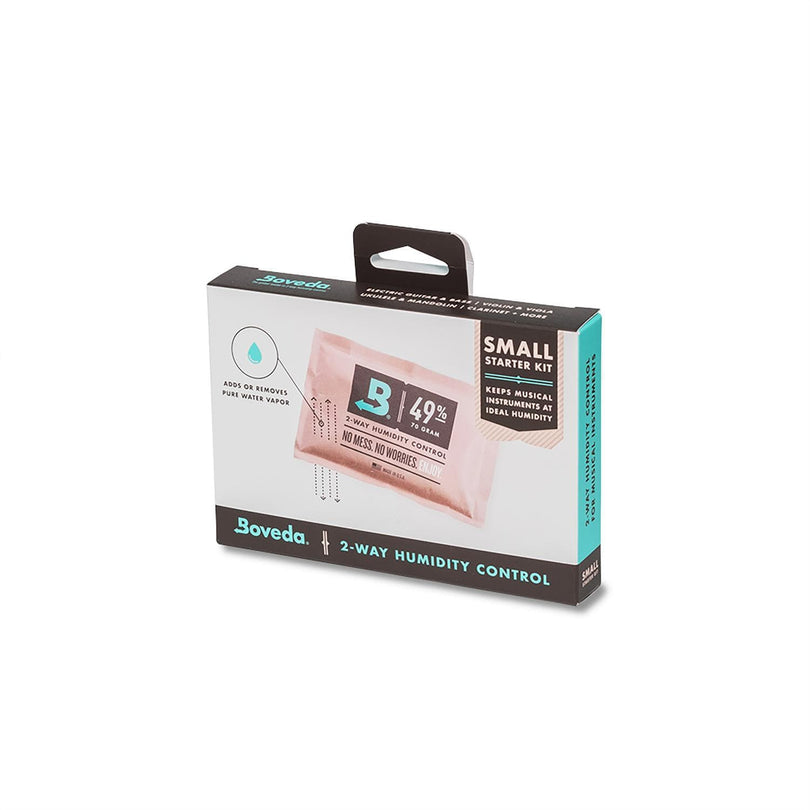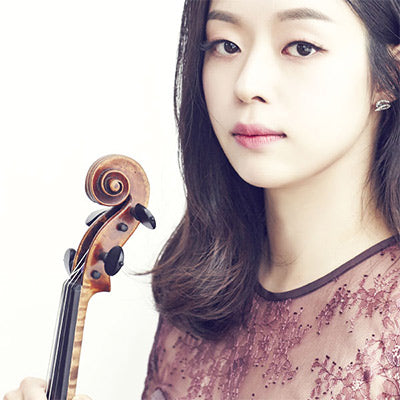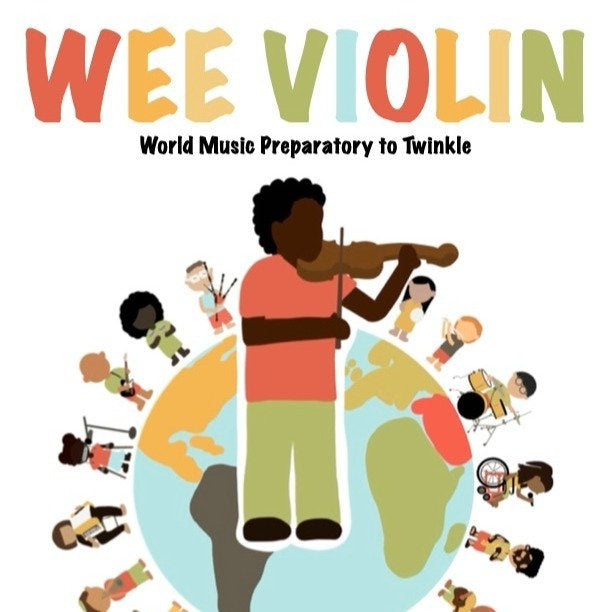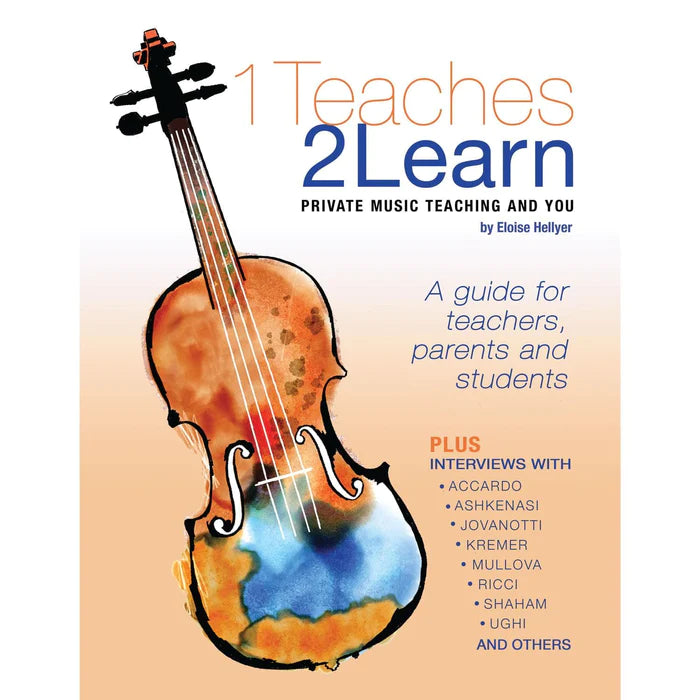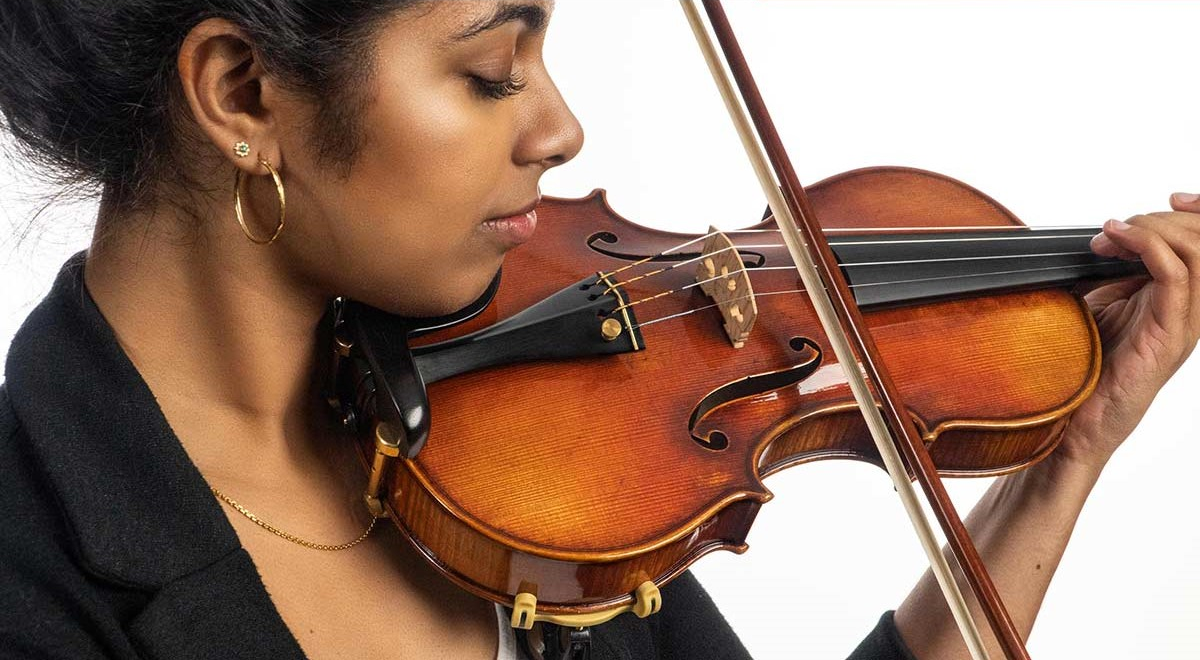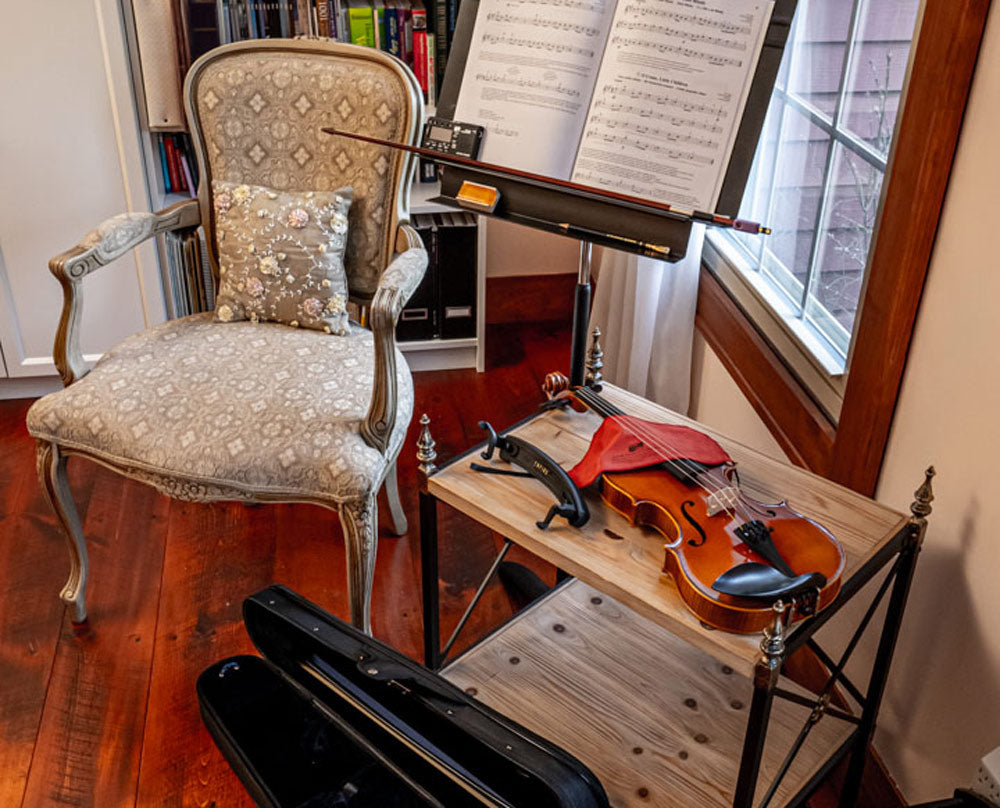This is our second piece dedicated to Hispanic Heritage Month 2023. Check out our Hispanic Heritage Month Collection for sheet music, rosin, and instruments made by Hispanic creators!
Born in Venezuela, Jesús Florido (@latinfiddler) takes great pride in his Latin American roots. His music not only combines cultural influences from his home country, but also from Cuba, the Dominican Republic, and Africa. With an Italian ancestry, Jesús is also inspired by European traditional music, opera, and classical music. Soon after his arrival in the US, he performed with Yo-Yo Ma, the Moody Blues, Jimmy Page & Robert Plant, and Whitney Houston. This high-profile exposure fueled the fire to ignite his own solo career. His album Heading North has been described as a “melting pot of Jazz, rock, classical, and Latin.” Today, Jesús paves the path forward for both string musicians and Hispanic artists.
Shar Music’s own Shruthi Kattumenu sat down for an in-person interview with Jesús to discuss his multifaceted career, where he gets his inspiration from as a composer and a musician, and what Hispanic Heritage Month means to him.
Below, edited for length and clarity, is their conversation; you can also watch the full video to get the complete Unvarnished Interview!
Shruthi Kattumenu: What led you to finding your path in classical music, fiddle music, and the cross-over genre you've been playing in?
Jesús Florido: I love talking about this because I have to blame it all (or give credit to) my father. [He] was very instrumental in exposing me to a lot of music as a child. The story goes that when I was eleven-years-old, I won my first competition ... my dad was really happy and proud ... and he said "this is great. You're really good at classical music, let's go play some folk music because you need to learn that to be a complete musician." And throughout my childhood he would keep feeding me records [...] and one record he said "this record will change your life" and he was right. To this day I'm still obsessed with Miles Davis.
SK: In the same vein, I know that you were very involved in the El Sistema program as a founding member. How do you think that shaped you throughout your career and how does that impact the way you impact people today?
JF: My mother and her friend ... signed me up. We had a big ceremony with Dr. [José Antonio] Abreu, the founder of El Sistema, to give us our instruments. At a big event at City Hall in my home town ... he showed up with the President! And there was a whole ceremony where the President gave me a medal (that I still carry in my case) and then Dr. Abreu handed me my little half-sized violin ... and then leaned toward me and almost whispered in my ear and said: "Jesús, with this violin you are going to change the world." ... Day one he taught us to be in service of others ... and that's my dream [after performing] be able to teach full time at a school somewhere, hopefully with nice weather [laughs].
SK: You've had such a multi-facted career. What is it like breaking down the tradition of classical music, while also having your skills and techniques rooted in the tradition?
JF: You can't deny 300 years of tradition. I'm not denying that at all. One of my most popular requests when I teach Master Classes is to teach chopping [bow technique] ... but you need to know the proper bow hold, right? That's classical training ... My philosophy of teaching is that I became the teacher I always wanted to have. I can break down anything I know to you and explain it and tell you where it comes from because it was a necessity I had to learn for myself. But the problem we have in classical music is that ... we hold ourselves to that high standard of perfection, and we forget the music ... [Classical technique] gives you the key, but it's up to you to open the door or not.
SK: You've performed acoustic, amplified, electric--what are the challenges of working with the different mediums?
JF: For me it was a huge learning curve, and did it all basically on my own. My father would take me about once a month to the record store and let me pick out whatever I want ... I found a record with a guy playing a purple violin with like rock n' roll stage lights and my mind was blown. It was Jean-Luc Ponty [with his album Aurora]. That was the first time I saw an electric violin ... when people ask me about the electric violin, because I'm an electric violin advocate, I say there is nothing better for your intonation than practicing with an electric violin at full amplification ... Some classical players look at electric violin like "oh that is beneath me," and I go, "well you try!" [Laughs].
SK: Speaking on the subject of being a Latino person and performer, what has been your experience navigating those stereotypes, or breaking those stereotypes?
JF: I never felt discriminated until I moved to the US. It was the first time somebody pointed out I looked different, and I'd traveled the world already--when I came to the US I was nineteen-years-old and I already had a career, and suddenly they were questioning me. [I thought] "But you haven't even heard me play!" ... The most common comment I get after a concert is "you don't look like a violinist," and ... it still hurts. Do you like the show, is that what you're saying? Do you like the show despite how I look? I learned that once I started playing, then people didn't have any doubts. But just like any minority, I have to be three times as good as anybody to achieve the same [success]. It shouldn't be that way, but it is.
We have made some improvements; the Sphinx Organization has been amazing. I love what Aaron [Dworkin] and Afa [Dworkin] have done over the years ... I would love to continue to collaborate. I wish I lived closer [laughs] ... Even for Larsen [Strings] to put me on a full page ad for Strings Magazine was a very daring thing to do ... I love that company so much because they did not care [where I came from]. They loved my work, and love what I do ... I want to see what more people who look like me represented.
SK: That is the common theme, right? ... At the root, you're a good musician.
JF: Exactly! I want to share my experiences with the next generation ... I look forward to the day when we don't need any heritage months, that we just exist. As Latino as I am, my parents were Italian immigrants ... it's my culture but it's not just that ... it's about good music, it's about doing good things for others, if we realize that in this world, we are all together.
Jesús Florido's Shar Music® Favorites
Strings: Jesús uses Larsen Strings on his violins, and is currently obsessed with the Il Canone Direct & Focused line.
Shoulder Rest: Jesús prefers to use the Performa Shoulder Rest for his full-size violins. You can also read his personal review of it here!

